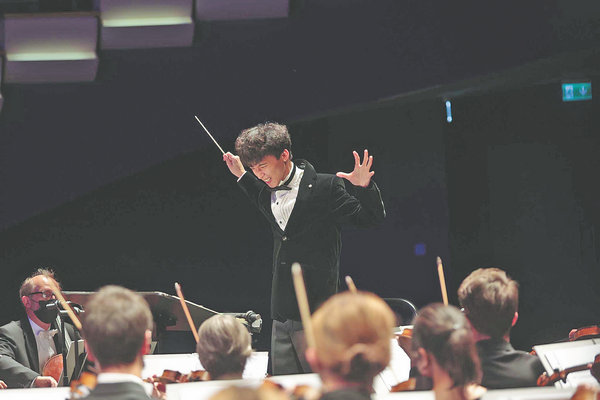A man of exceptional conduct


He has also had some bad experiences. "When I feel that I am not managing to bridge the music between the composer and the audience, I know that it's time to stop for a while. I feel then that I am leading the orchestra into (metaphorical) quicksand rather than bringing the different sounds together," he says. "I just pull myself out."
So he'd pause the rehearsal at times he realizes he is not leading the orchestra into the direction he wanted.
"There's a huge gap between the training you receive in a conservatory and what is required of a professional conductor. The most basic thing is to build and expand my repertoire, and gain a deep understanding of each piece," he says. "It is a skill that involves psychology, body language, knowledge of history, culture and music, and a sensitivity to everything that makes us human."




































